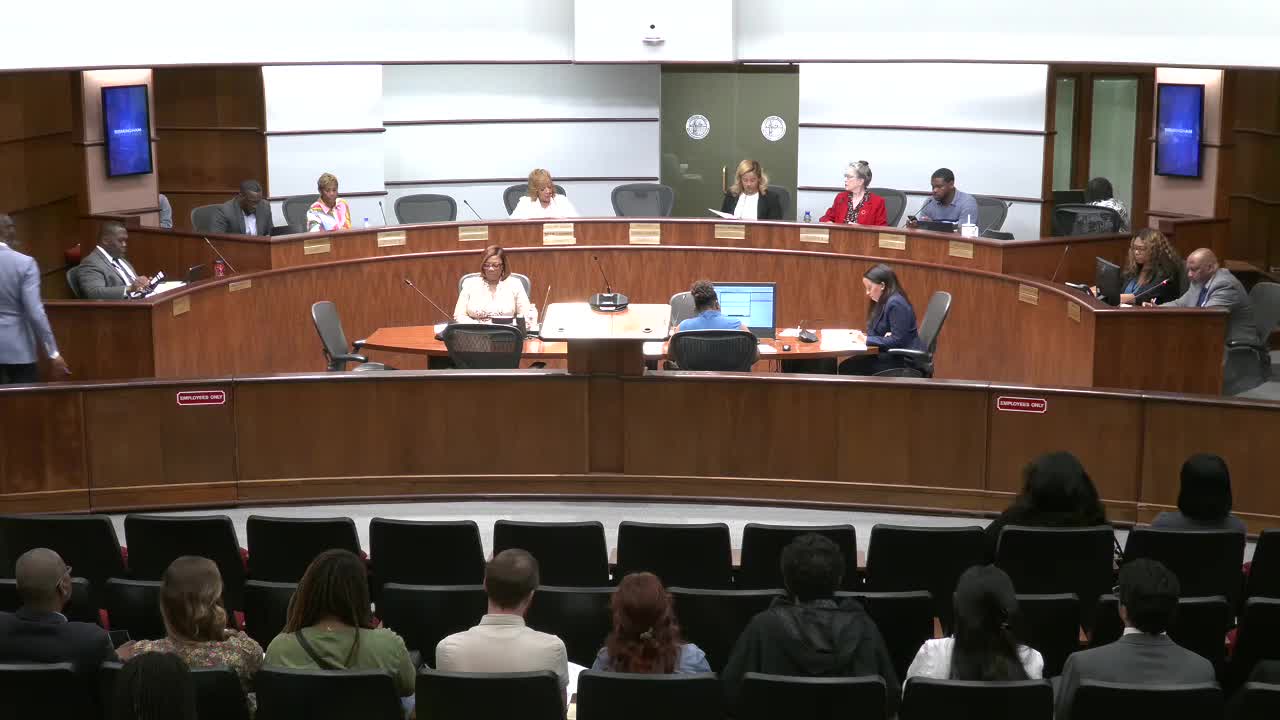Birmingham council adopts climate equity resolution recognizing local advocacy group
Get AI-powered insights, summaries, and transcripts
Subscribe
Summary
On April 22, 2025 the Birmingham City Council adopted a climate equity resolution recognizing the Greater Birmingham Alliance to Stop Pollution and urging actions on public transit, pedestrian accessibility, stormwater and heat mitigation, the council heard.
The Birmingham City Council on April 22 adopted a climate equity resolution recognizing the Greater Birmingham Alliance to Stop Pollution (GASP) and calling for local action on public transportation, pedestrian access, flood and stormwater management, and urban heat mitigation.
Councilor Crystal Smitherman introduced the resolution and the council approved it by voice vote. Carrie Dowell, climate change program manager for GASP, told the council the resolution is "from 3 years of community engagement, research and expert consultation" and reflects priorities raised by residents. Kennedy Butler, a graduate student at the University of Alabama at Birmingham who volunteered on the project, said the resolution is designed to "improve the quality of life for Birmingham residents, especially for those in climate vulnerable areas."
The resolution cites a community-engagement process that GASP said included six town-hall style events in 2022–23 and focus groups in 2023, and it frames proposed local actions around five areas the group identified: public transportation, pedestrian accessibility, transparency and community engagement, flooding and stormwater resilience, and urban heat mitigation. The text introduced at the meeting also references the Birmingham–Hoover metropolitan area Priority Climate Action Plan adopted in March 2024.
During the presentation, Dowell said GASP worked with local experts and the Birmingham–Jefferson County Transit Authority in developing recommended measures. Butler summarized possible measures from the resolution, including improving pedestrian infrastructure, offering incentives for transit use, adopting flood-adaptive housing programs, and using reflective pavement or street art to reduce heat in vulnerable neighborhoods.
Council members thanked the students and GASP for their work. The resolution text presented at the meeting recognizes GASP’s contributions and invites continued partnership between the city and the advocacy group. The council did not provide a roll-call vote count on the record; the clerk conducted a voice vote and the chair recorded the motion as approved.
The action directs no specific ordinance, budget appropriation, or staff requirement in the text presented at the meeting; rather, it recognizes GASP, outlines priorities, and invites further engagement and the publication of a climate action framework by GASP and its partners.
The council discussion and the GASP presentation took place during the regular council meeting agenda and public presentations portion of the April 22 session. Councilors and presenters described the resolution as a local, equity-focused framework rather than an immediate regulatory or budgetary commitment.
The council recorded the resolution as approved by voice vote with no numeric tally provided in the meeting record.
